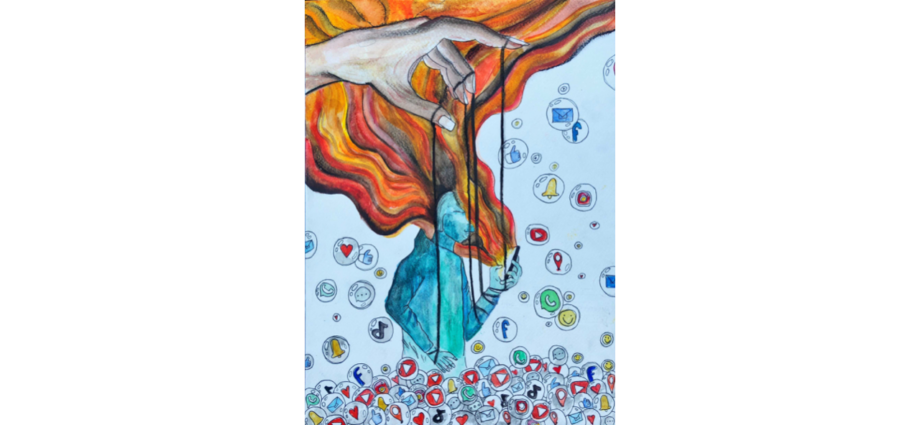Written by Lena Cohen Zennou
In his book called Toxic Data, David Chavalarias, the Research Director of the French National Centre for Scientific Research, states that “the Facebook news feed has become one of the most influential sources of information in the history of mankind”. This quote sheds light on what social media and Internet have evolved into: the primary source of information for the population, allowing for the democratization of information to a broader sphere of society. However, there is a paradox: the same Internet that allowed this, is also the source of filter bubbles, echo chambers, and the commodification of personal data. Furthermore, the growing influence of cartel-like companies on the Internet raises the question of how compatible is the Internet with democracy.
The Threat of Algorithms & Those Who Control Them
Democracy flourishes with an enhanced citizen participation. Jan W. van Deth defines political participation as “citizens’ activities affecting politics.” Chavalarias claims that social media is the main source of political participation for people under 35 in France. This is problematic because although in theory social media algorithms present themselves as neutral tools for users to inform themselves, in practice some news are prioritised over others. Furthermore, there is evidence proving that algorithms favour conservative over progressive opinions in France. This limits the equality of reach on the Internet and undermines freedom of information.
In addition to this, technologically influential companies, like the GAFAM, often favour posts that keep users for more time on social media to sell the user’s attention and screen time to advertisers. Content that stimulates the most engagement includes fake news, conspiracy theories, post that invoke anger, and negative news. This creates incentive for these companies to not truthfully inform the population. Their profit-seeking attitude, driven by opaque algorithms, goes against the goals that all democracies share: the wish to inform their population neutrally.
Moreover, as algorithms become more politicised and aim to create a society that is « addicted, outraged, polarised, performative and disinformed”, a monopole is created in which only the most influential inform the population. This hinders a pure and perfect competition in the market of information, because not everyone is allowed to participate equally in the political debate. Thus, too much freedom and not enough control over the market undermines the principle of equality in democracy.
Further Consequences of Algorithms: Filter Bubbles & Echo Chambers
Furthermore, the creation of a personal tailor-made feed by algorithms leads to filter bubbles and the formation of echo chambers: one-self digital chambers where the information circulates in a closed vacuum. As such, users receive the same information many times from different channels, without knowing it comes from the same source. Indeed, they might never receive contradictory information coming from “outside”. This creates a space disconnected from reality, and endorses the proliferation of fake news, favouring the radicalization and polarisation of debates. This has been seen to be problematic for democratic processes, such as elections.
The Commodification of Personal Data & the Consequences of Targeted Advertising
The business model of technologically influential companies being based on the commodification of personal data and our screen time leads to ad targeting. Knowing the past preferences of users through algorithms, specific ads are presented to specific users in order to sway their opinion. Robert Epstein, a researcher for the American Institute for Behavioural Research and Technology, has claimed that executives of Facebook or Google could “influence an election in an undetectable way”, further stating that “democracy as it was conceived cannot survive Big Tech with the powers it currently holds”. Indeed the Internet presents a threat to the autonomy and the capacities of the state, because it hinders the independence of the state in carrying out basic tasks, such as elections and informing citizens.
Nevertheless, the Internet was never depicted as such. Indeed, the Internet has always been portrayed as a realm of unrestricted freedom, where the user may wander wherever he wants and learn anything he wants. This “fraud” lowers the user’s critical sense, making him more permeable to messages directed at him. This demonstrates how the abuse of targeted advertising for political gain raises serious concerns about the integrity of the democratic institutions.
Conclusion
It can be said that social media algorithms and Google are a considerable threat to equal political participation and democracy because of the biased algorithms that favour profit over truthful information. This attitude is not politically neutral and impacts elections, which impedes state autonomy and capacity to be fulfilled. As such, Internet requires regulation.
Regulation would mean less freedom for specific members of society (the ones in charge of Big Tech companies), but would lead to more equality for the majority. As such, the regulation of an excess of freedom would automatically lead to more equality. However, there is legal uncertainty regarding the responsibility of those platforms concerning all the issues mentioned above. There is a tradition observed throughout Europe of delegating these issues to the private companies that own the platforms. However, in the case of France two laws have been allowed the government through the CSA (the French regulator of the audio-visual industry) to regulate further the Internet: one concerning fake news, and the other one regarding hate speech. Here, freedom has been compromised by the regulation, leading to more equality among different media on the French Internet. However, nothing has been done concerning the opaqueness of the algorithms, which hold risks for certain democratic processes.
Chavalarias highlights that “democracies are not everlasting” and I would like to bring your attention to the threat of algorithms.
Edited by Margaux Marzuoli, artwork by Lena Cohen Zennou

